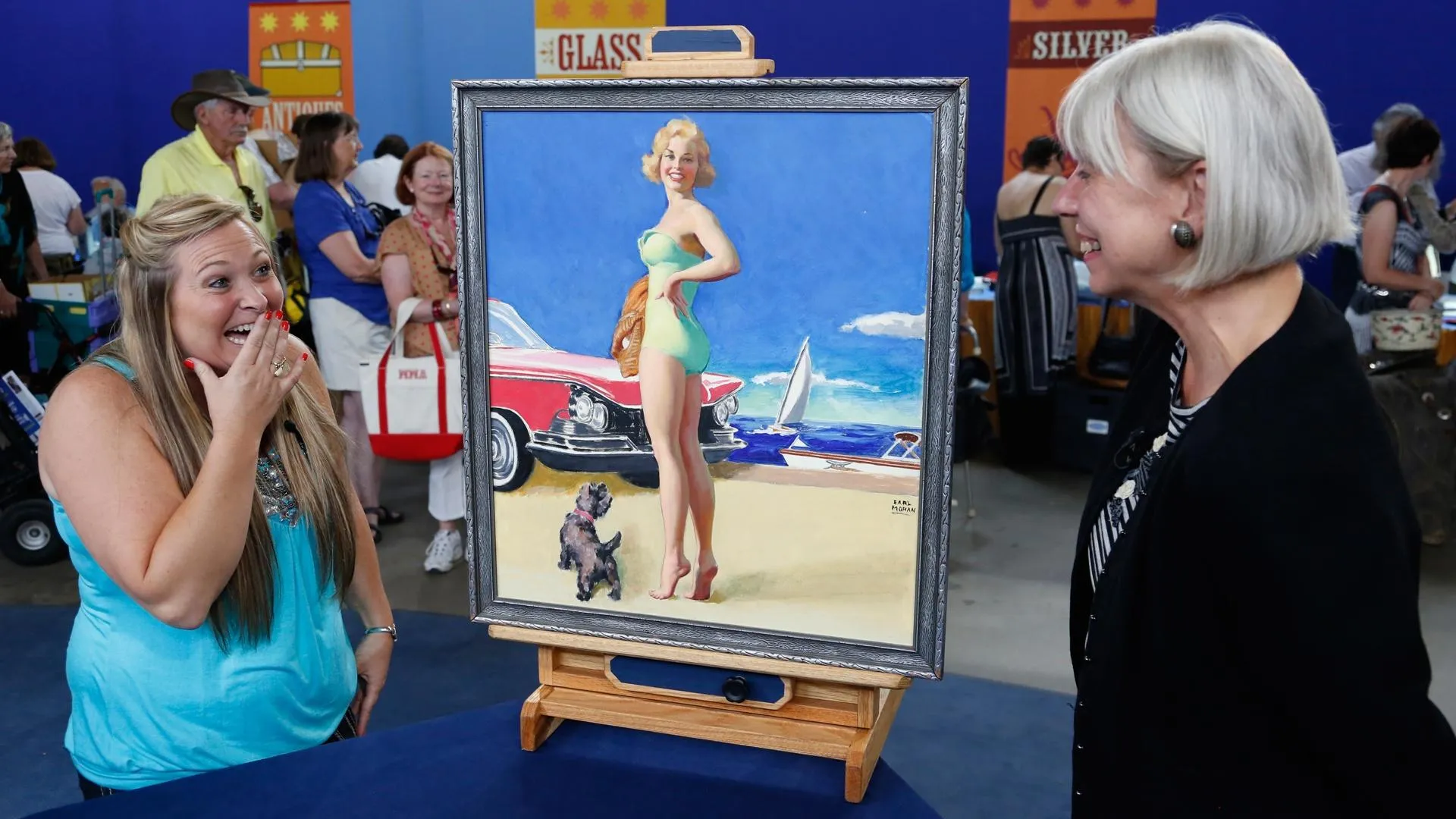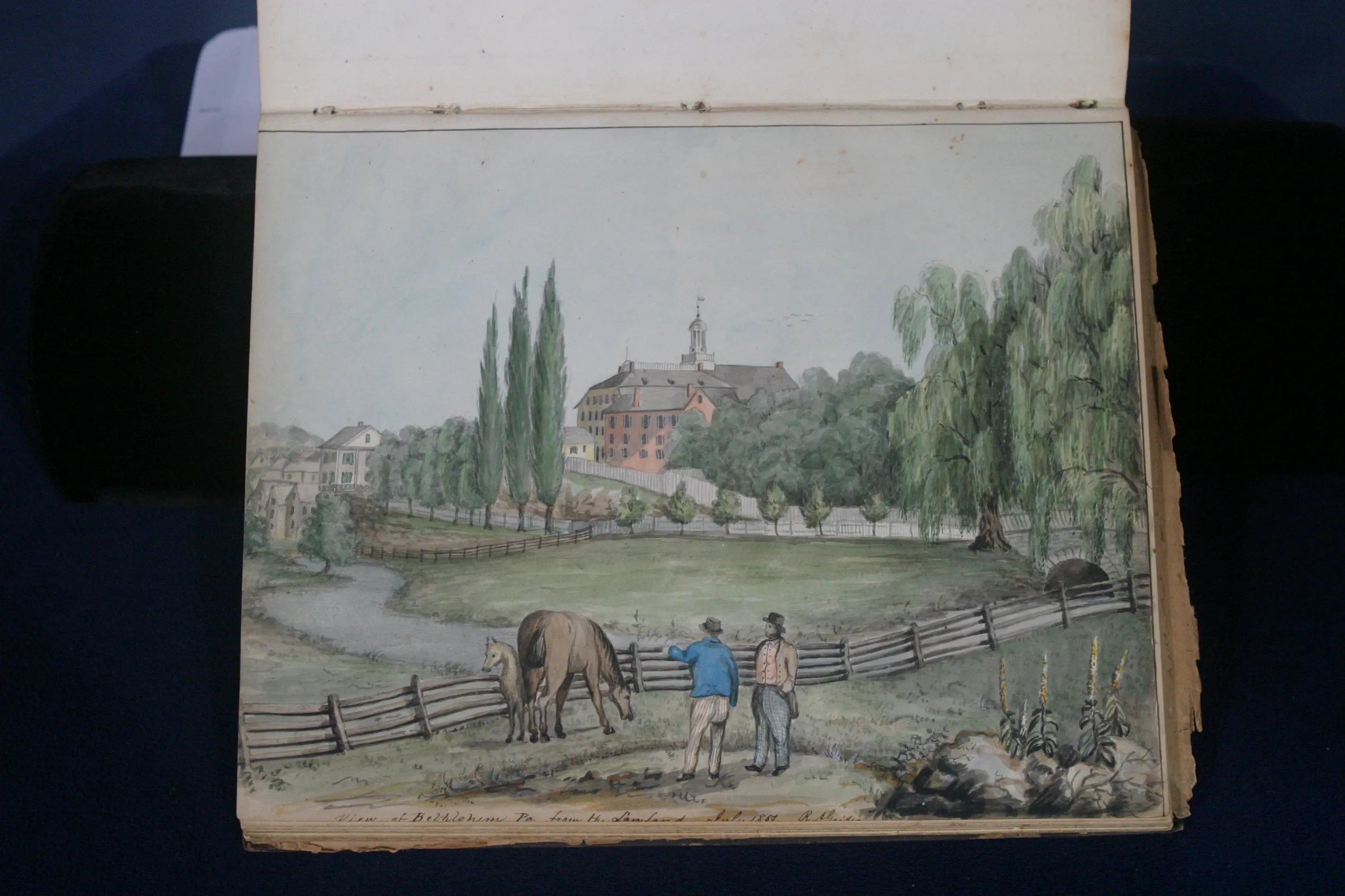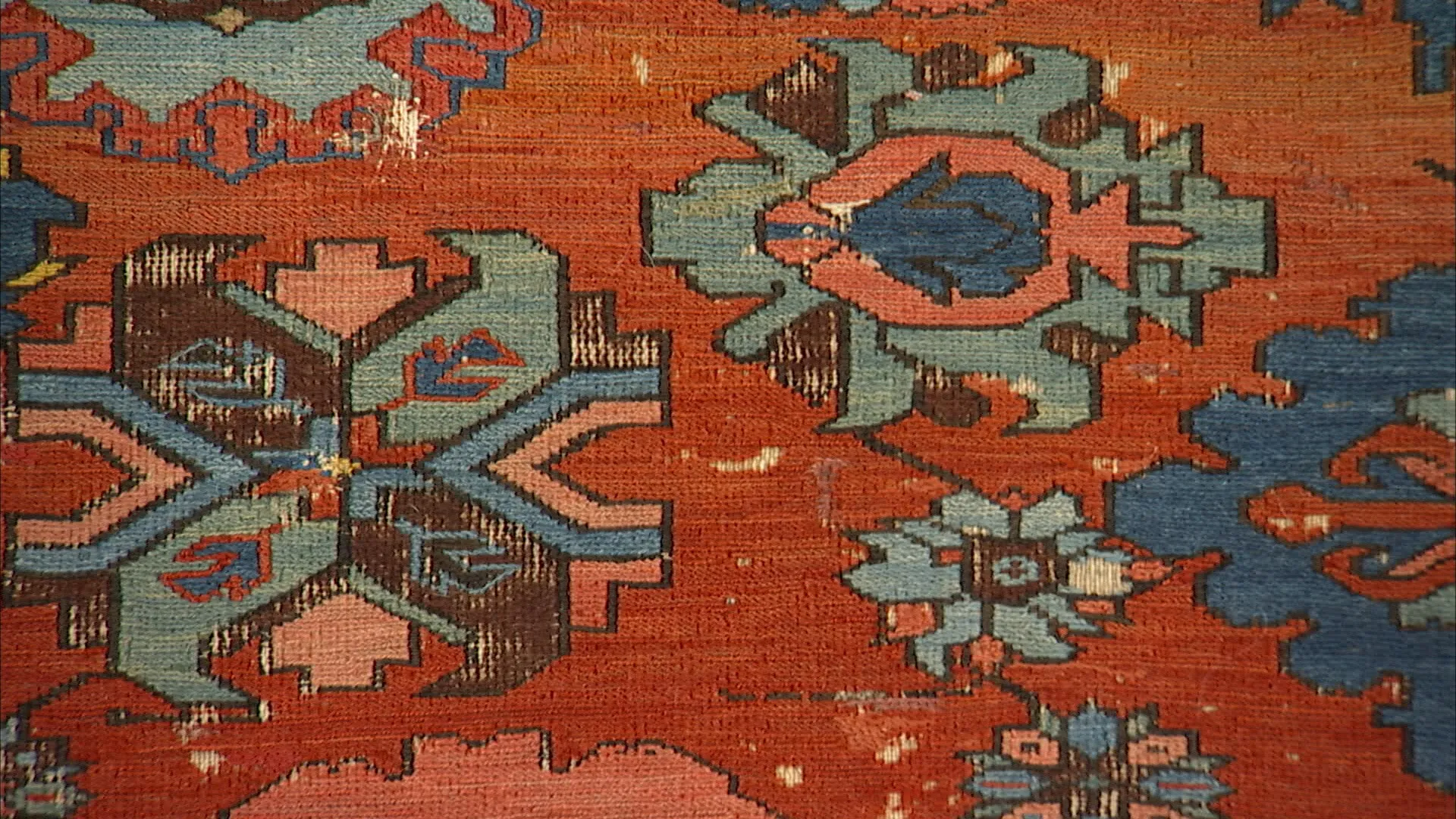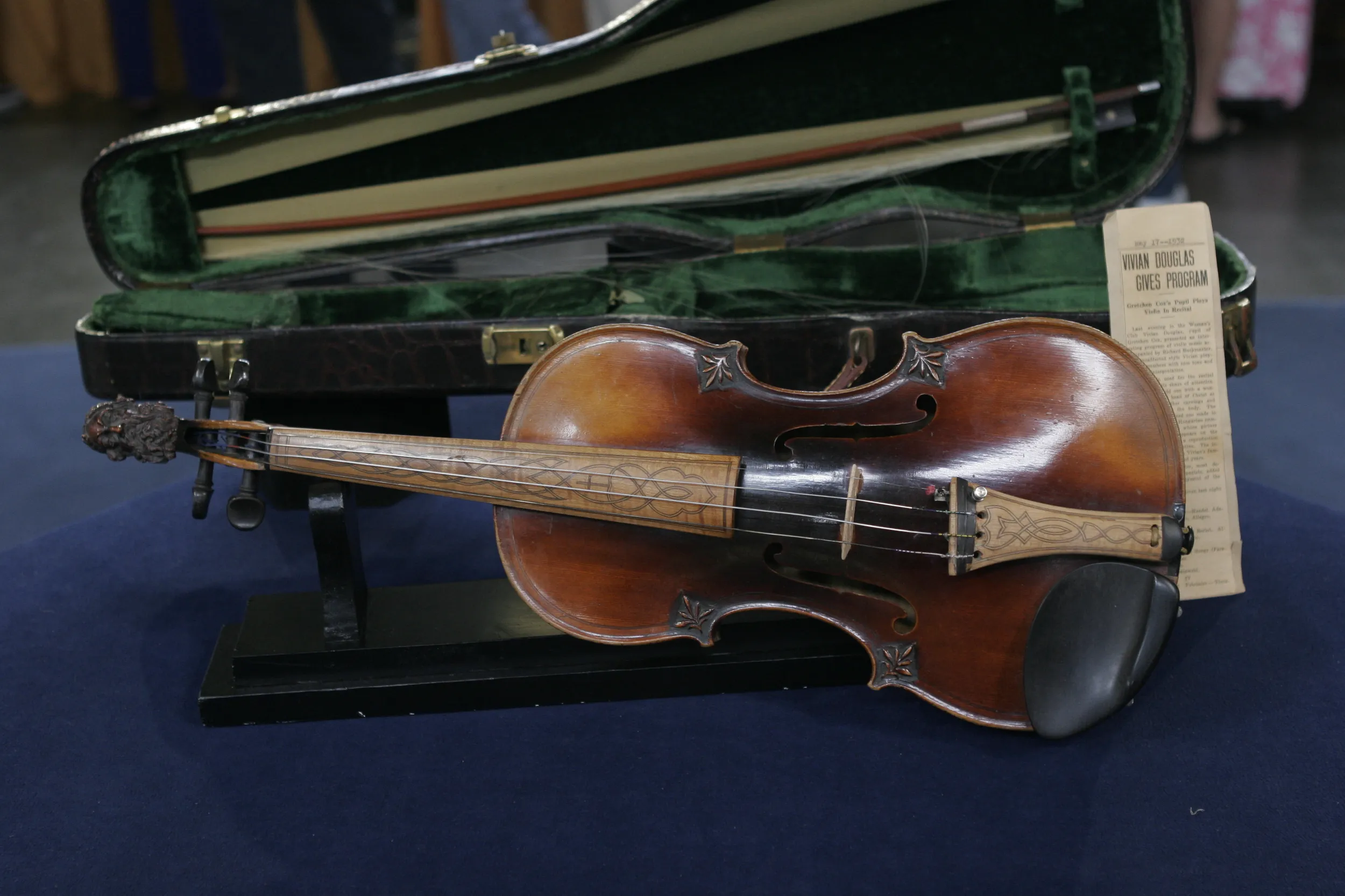GUEST: I brought in a sword that used to belong to my great-great-grandfather.
APPRAISER: And who was he?
GUEST: His name was Colonel John B. Reed. He fought in the Civil War and was stationed down in Louisiana and was wounded down there and held prisoner. He served with the Union Army.
APPRAISER: And he was 130th Illinois Infantry.
GUEST: Yes.
APPRAISER: And where was he from?
GUEST: He was from Bond County, Greenville, Illinois.
APPRAISER: Okay, and how did he get this sword?
GUEST: After he was wounded and held prisoner, the rebels kept his original sword. So he was shipped home to heal after he was released. The town collected money to buy him a new sword, and before they had time to buy that sword for him, he was sent back into battle, so they gave him the money, and while he was out in battle, he purchased the sword himself and had it engraved.
APPRAISER: How do you know this story?
GUEST: It's come down through generations, but I do have a few books that have information about all of this in them.
APPRAISER: He was captured and taken prisoner at the Battle of Mansfield, Louisiana, and was sent to Texas to the prisoner-of-war camp.
GUEST: That's right.
APPRAISER: And then he came home. As a token of their esteem, the citizens raised money to buy him a sword.
GUEST: Yes.
APPRAISER: Most of the time, they're able to get the sword, get it to him. This one, it wasn't, but he did take that money and bought this sword. And I found the notation where it references, and it says, "I got a good one." (laughs) And he did get a good one.
GUEST: Good.
APPRAISER: Do you know where the sword's made?
GUEST: Not a clue.
APPRAISER: It's actually made in Solingen, Germany, and it's made by a company called Clauberg.
GUEST: Really?
APPRAISER: And they made really high-end swords such as this one. They made them for Tiffany, and they made them for several other makers that would mark them, and then they also were in it for the money, so they would sell them to small retailers such as this.
GUEST: Where would he have found a sword in the United States that was made in Germany?
APPRAISER: Well, during the Civil War, war meant big business, and they imported things from overseas. Lots of things: everything from buttons to swords. They even brought over cannons. The blade was actually gold-washed at one time, and you can see traces of the gold wash. So it was a real high-quality sword. We have a silver handle, and the scabbard, it has brass mounts, but on top of those brass mounts, they applied the eagle and they made these fancy decorations on the mounts. And the rings, that's what it hung from the belt from, and you can see they've got a twist to them. A little bit of extra quality all the way around. Did you know the sword actually had a jewel on it at one time?
GUEST: Yes, it was a ruby, and he had several granddaughters, and one of them pried the ruby out and made a necklace.
APPRAISER: Really?
GUEST: And I wish I knew where it was, but I do know that there was a ruby at one time.
APPRAISER: The piece that holds the whole sword together is called the pommel cap. It's made of cast brass, and on the very end of it, there was a small stone. You might have something on her, because most of the time, it was a fake ruby anyway.
GUEST: Really? Oh, that's funny!
APPRAISER: What I like about it is on the top mount, it says, "Presented to Lt. Col. John B. Reed "from the citizens of Bond County, Illinois, January 7, 1865." And what's cool is he went and bought the sword, but he knew the people and he remembered those people that thought enough of him to give it to him, and he put them on there as well. That's a touch of class. And he actually survived the war, correct?
GUEST: Oh, yes, he lived to be 77.
APPRAISER: And I bet this was a piece that he was proud of till the day he died, because at the Battle of Mansfield, he was shot through the lung, and the fact that he survived at all is amazing.
GUEST: Yes, it is.
APPRAISER: So an amazing man, beautiful sword, and I'm glad it's still in the family. This is a sword that if you were going to insure it, I would insure it for $6,000.
GUEST: Okay, wow, that's great.









